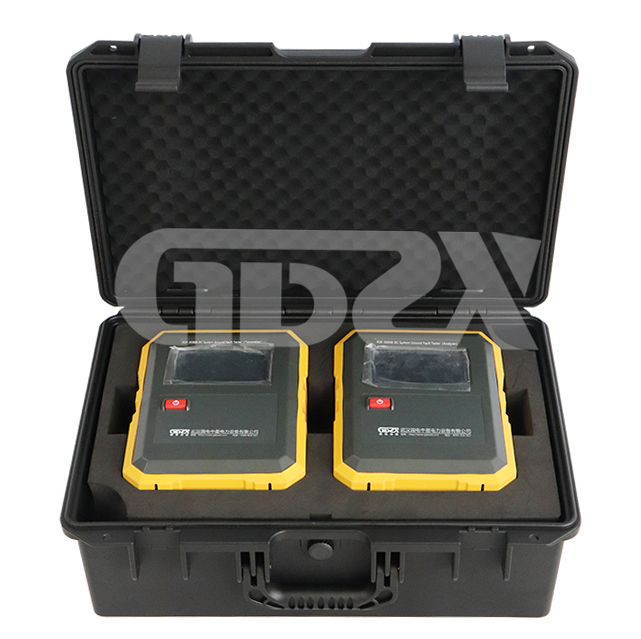NEWSnews
Advanced DC Grounding Fault Detection: A Technical Analysis of the PDF-3000B Sys
DC system grounding faults pose significant risks to power infrastructure, potentially disrupting operations and damaging sensitive equipment. Traditional detection methods often struggle with complex fault types, distributed capacitance interference, and operational downtime. The PDF-3000B DC Grounding Fault Tester emerges as a hybrid solution, combining the portability of handheld devices with the analytical rigor of online monitoring systems. This article provides a technical deep dive into its design philosophy, performance benchmarks, and comparative advantages over conventional approaches.

Core Technologies and Architecture
The PDF-3000B integrates two modular units: the Analyzer (signal emission/analysis) and the Locator (fault pinpointing). Key innovations include:
1.Phase Advance Processing: Enhances sensitivity to weak signals (≤0.1mA leakage current) while suppressing harmonics and transient noise.
2.Data Transfer Algorithm: Enables real-time waveform reconstruction using spectral analysis, resolving challenges from AC crosstalk and capacitive coupling.
3.Unbalanced Bridge Architecture: Facilitates simultaneous measurement of grounding resistance (0–300kΩ ±2kΩ) and distributed capacitance (1–200μF ±2μF) without bus disconnection.
Performance Benchmarking
Comparative Analysis with Legacy Systems
Parameter | Traditional Methods | PDF-3000B |
Power Source | External AC/battery-dependent | Direct bus-powered (30–280V DC) |
Fault Coverage | Limited to low-resistance faults | Supports 12+ fault types* |
Capacitive Interference | Susceptible to false positives | Active cancellation via 0.5Hz test signal |
Safety | Risk of relay misoperation | <0.15W output; current-limited design |
Operational Workflow | Requires line disconnection | Live detection; no shutdowns |
*Includes high-impedance (≤999.9kΩ), AC-DC crosstalk, diode-isolated, and battery grounding faults.
Key Metrics
1.Speed: Localizes faults within 2 minutes using directional current analysis (phase-sensitive rectification).
2.Accuracy: 100% fault identification rate in field trials with ≤1% voltage measurement error.
3.Versatility: Compatible with 12V–300V DC systems; detects mutual line faults (e.g., polarity crossover).
Field Application Insights
1.Case Study – Substation Grounding Loop
A 220kV substation experienced intermittent tripping caused by a 68kΩ grounding loop. Conventional clamp meters failed due to capacitive coupling from 5μF bus capacitance. The PDF-3000B isolated the fault to a CT terminal using its Smart Current Clamp (0.1mA resolution) and Ripple Analysis Mode, distinguishing leakage current from background noise.
2.Battery Grounding Detection
Unlike impedance-based testers requiring battery isolation, the PDF-3000B employs differential current measurement across battery strings, identifying a 12kΩ ground fault in a 48V bank without disconnecting loads.
Limitations and Optimization Strategies
1.High-Capacitance Environments: While the 0.5Hz test signal minimizes capacitive reactance (Zc = 1/2πfC), branches with >200μF capacitance may require auxiliary filtering.
2.Lithium Dependency: The Locator’s 12V/3100mAh battery limits continuous operation to 8 hours; redundant packs are recommended for extended surveys.
The PDF-3000B redefines DC fault diagnostics through its dual-module architecture and algorithmic signal processing. By eliminating the portability-accuracy tradeoff endemic to legacy tools, it achieves rapid, non-invasive fault localization across diverse grounding scenarios. Future iterations could integrate IoT-enabled trend analysis, further advancing predictive maintenance frameworks.
GDZX is a manufacturer of power detection equipment, offering a diverse range of products with comprehensive models and providing professional technical support. Contact us at +86-27-6552607 or +86-17396104357.Website: http://en.gdzxdl.com/





















